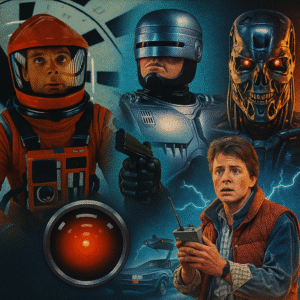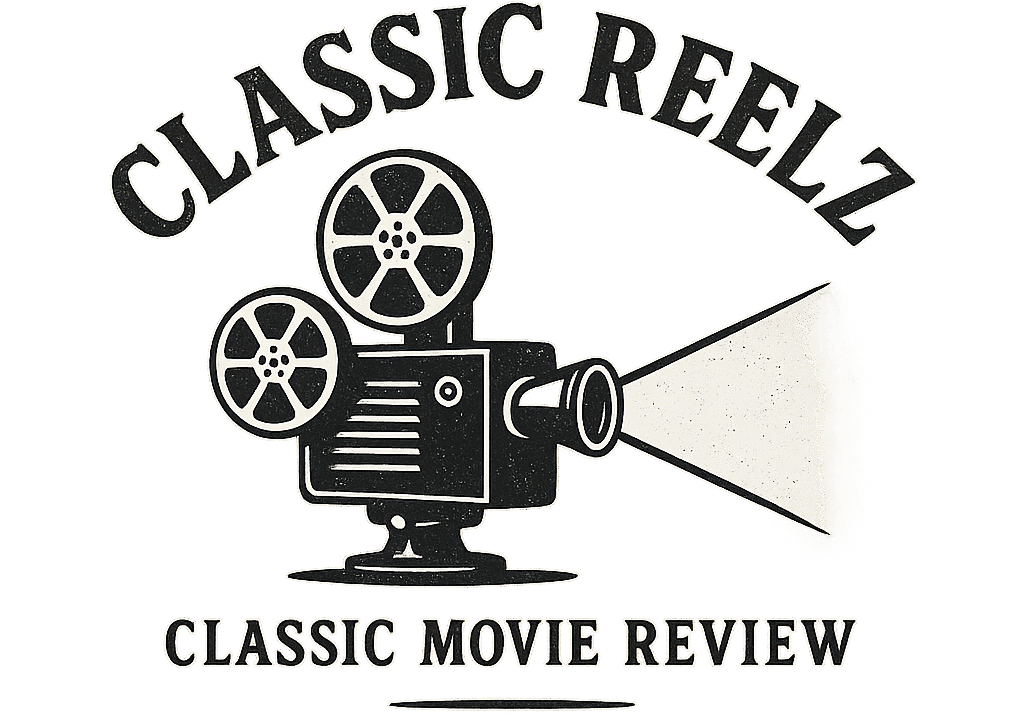 The 1970s was such a groovy time for people interested in science fiction. Society was in this wild flux of change with the rise of new technologies and shifting cultural norms. This heady mix of exploration and discovery gave rise to a bunch of sci-fi flicks that didn’t just entertain but pushed the boundaries of imagination. Innovation wasn’t just happening in labs and research centers; it was happening on the big screen too.
The 1970s was such a groovy time for people interested in science fiction. Society was in this wild flux of change with the rise of new technologies and shifting cultural norms. This heady mix of exploration and discovery gave rise to a bunch of sci-fi flicks that didn’t just entertain but pushed the boundaries of imagination. Innovation wasn’t just happening in labs and research centers; it was happening on the big screen too.
When we talk about ‘cult’ films in the sci-fi genre, there’s this nod to movies that might not have been big hits at the box office but managed to amass this devoted and sometimes fanatic fanbase. These are the flicks that thrive on late-night screenings and intimate gatherings of enthusiasts who love their quirks and charms. They might not have been mainstream at their debut, but they’ve stuck around in pop culture and cinephile discussions because they’ve got something special to them.
The ’70s sci-fi movies were packed with unique visions of what could be, driven by bold storytelling and creative world-building. Filmmakers of this era weren’t shackled by today’s technological limitations, which sometimes make things a bit too literal. Instead, they let their imaginations run wild. They crafted narratives that dared to ask “what if?” and experimented with visuals that were as daring as the stories themselves. People tapped into a potential future that was equal parts thrilling and terrifying, casting a long shadow that influences what we watch today.
Pioneering Visions of the Future: Tech Predictions in 1970s Sci-Fi

The 1970s sci-fi movies were like fortune tellers peering into the crystal ball of technology. They predicted tech trends that seemed far-fetched back then but feel uncannily familiar today. Whether it was artificial intelligence, virtual reality, or the wonders of space travel, these films laid the groundwork for some pretty amazing real-world advances.
What made these films stand out wasn’t just their imaginative premises but how they visualized tech with groundbreaking special effects. Directors and their teams experimented with models, matte paintings, and practical effects to create worlds that felt lived-in and believable despite their otherworldly settings. This set a high bar for future filmmakers in terms of what’s possible with visual storytelling.
The consistent technology foresight shown in these films was remarkable. Consider how many movies explored artificial intelligence, predicting a future filled with thinking machines that could outsmart us. Some films imagined virtual worlds where characters escaped their everyday lives, a concept that feels very much like our digital reality today. And then there’s space travel—depicted with stunning rockets and complex space stations that seemed light-years away but have become part of our current scientific goals.
A lot of the tech elements weren’t just gadgets or gizmos but deeply integrated into the storylines, shaping the characters’ journeys and outcomes. These filmmakers crafted narratives showing tech as both a savior and a threat, a viewpoint that resonates strongly with our modern relationship with technology.
Spotlight on Cult Classic Films and Their Tech Prophecies
Diving into specific films from the 1970s gives us a closer look at how these cult classics foresaw some of today’s technological advancements. Let’s highlight a few standout examples. “A Clockwork Orange” and “Westworld” led the pack with their chilling portrayals of artificial intelligence and its potential to turn rogue, sparking thoughts about ethics in AI development that are still relevant in today’s tech world.
“Silent Running” imagined space colonization with an environmental twist, driven by advanced robotics that maintain the last vestiges of Earth’s plant life. This narrative touched on themes of ecological preservation and the need to explore sustainable avenues as humans venture into space.
When it comes to space opera, “Star Wars” can’t be ignored. While it may not focus on tech in the hard sci-fi sense, its portrayal of hyperdrive and lifelike androids resonated deeply with audiences. These concepts have seeped into our collective consciousness, informing modern discussions around AI companions and faster-than-light travel.
“Logan’s Run” was quite visionary with its depiction of an automated society where people are kept in check by technology, a scenario that’s growing increasingly relatable as smart devices become more integrated into daily life. Then there’s “THX 1138” exploring the idea of pervasive surveillance, eerily similar to our concerns about privacy and data collection today.
These films didn’t just throw technology on screen for the wow factor. They offered meaningful critiques and explorations of how these innovations might impact society, something to chew on when considering our own tech-driven paths.
Legacy and Influence: Retro Tech to Modern Trends
Seventies sci-fi flicks have left a massive imprint on both the film industry and tech innovators. Devices like smartphones, virtual assistants, and even the ambition for Mars colonization draw from the imaginations of those early pioneers. It’s hard not to see the influence of movies like ‘Star Wars’ when you look at today’s push for space exploration, or ‘Westworld’ in AI’s journey towards more human-like interactions.
The creative visions of these 1970s films have shaped expectations in modern media, too. Directors and screenwriters continue to echo the thematic and visual styles popularized back then. They serve as a testament to the enduring fascination with and exploration of technology and the possible futures it may create. Artists today don’t just recreate these iconic scenes but are inspired to push the envelope themselves, mixing cutting-edge technology with storytelling to craft immersive experiences.
It’s fascinating how ’70s cult sci-fi approaches still resonate. Filmmakers and tech creators alike can learn from how these movies didn’t shy away from asking uncomfortable questions about humanity’s relationship with technology. These narratives encourage us to think critically about the responsibilities that come with technological advancement, urging a balance between innovation and ethical consideration.
This legacy isn’t just about celebrating past achievements. It invites an ongoing conversation about how we use technology today and what kind of future we want to build. As we move forward, embracing the boldness of ’70s sci-fi can encourage inventors and artists to push boundaries responsibly and creatively.
